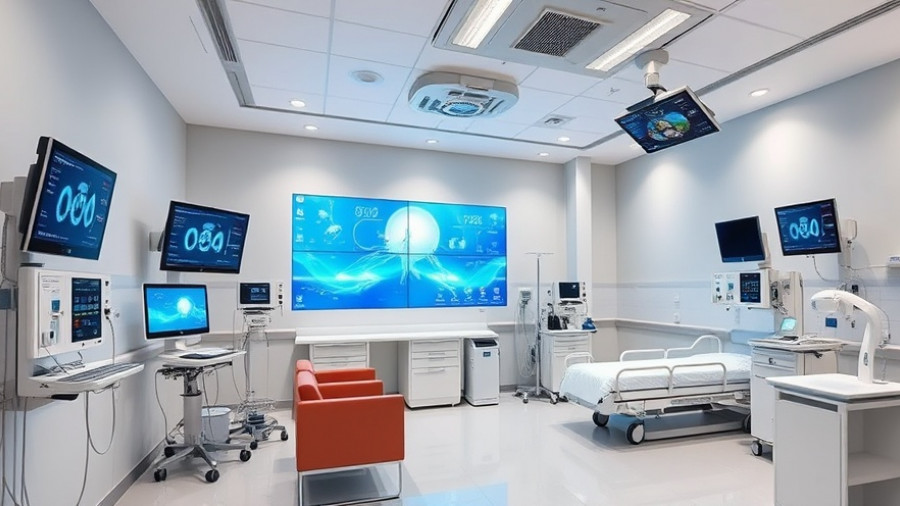
The Science of Sleep: How It Shapes Our Minds and Emotions
As society becomes increasingly aware of the importance of mental health, one topic has risen to the forefront of neuroscience: sleep. Once considered a mundane necessity, recent research paints sleep as a critical process for cognitive and emotional health, often referred to as the brain's "rinse cycle." This transformation in understanding beckons us to explore not only what happens when we sleep but also the ramifications of sleep deprivation on our behavior and thoughts.
Understanding Sleep and the Glymphatic System
The ⟪ Proceedings of the National Academy of Sciences USA ⟫ published groundbreaking findings that identified the brain's glymphatic system—a unique network of channels that collect and eliminate waste. Coined from the terms 'glial' (supportive brain cells) and 'lymphatic,' this system plays a pivotal role in clearing metabolites accumulated during our waking hours. It functions much like a tidy-up crew, working overtime while we sleep.
Research from 2012 by neuroscientist Maiken Nedergaard laid the groundwork for this understanding. What once seemed a mere side note in sleep studies is now recognized as vital for brain health. The oscillations of blood vessels, encouraged by norepinephrine during sleep phases, increase the efficiency of this cleansing process. By enhancing this flow every ten seconds—rather than the typical fifty—we assist our brains in discharging harmful substances, particularly amyloid proteins linked to neurodegenerative diseases.
The Impacts of Sleep Deprivation on Mental Health
Sleep deprivation casts a long shadow over our mental and emotional well-being. Research shows that a lack of quality sleep can disrupt vital cognitive functions, impairing our ability to suppress unwanted memories or intrusive thoughts. A 2021 study indicated that sleep-deprived individuals struggled to push intrusive memories aside, with fleeting moments of clarity during REM sleep proven essential for this process.
The repercussions are stark. Increased activity in the brain regions responsible for memory retrieval during sleep disturbances suggests that sleeplessness exacerbates conditions such as depression and PTSD, where unwanted memories loom large. When we fail to let go, we risk rehashing old grievances, perhaps framing conflicts in the ongoing tech rivalries witnessed today.
What Sleep Science Reveals About Modern Challenges
As tech moguls and companies find themselves entrenched in competitive struggles, the science of sleep becomes profoundly applicable. The high-stakes world of Silicon Valley may foster an environment where sleep deprivation fuels ongoing rivalry—leading to destructive behavior stemming from unprocessed emotional conflicts. This intersects with findings indicating that sleep deprivation disrupts neural pathways, leading to difficulty in managing thoughts and emotions in this competitive landscape.
Intriguingly, sleep scientists noted that their findings indicate a correlation between sleep and behavioral health. The inability to regulate memories related to past recognition leads to detrimental impacts, resembling a cycle where sleepless nights generate restless days.
Future Insights and the Pulse of Sleep Research
As we advance deeper into the 21st century, sleep research presents a fertile ground for understanding the connections between rest, cognitive function, and emotional health. Recognizing the importance of sleep could unlock powerful avenues for enhancing mental well-being in corporate settings and beyond.
Emerging technologies, including sleep monitoring apps and smart devices, facilitate a more profound understanding of individual sleep patterns. Insights drawn from this data could help in crafting personalized strategies for better sleep, staggering implications arise for industries focused on wellness, productivity, and mental health.
Takeaways: The Imperative of Prioritizing Sleep
Challenging yet important truths emerge from this body of research: sleep is not merely a luxury; it is the backbone of our cognitive integrity. Understanding the glymphatic system and the risks associated with sleep deprivation empowers individuals to prioritize rest more seriously. By acknowledging that sleeplessness does not only affect us physically but emotionally and cognitively, we can begin to shift our cultural perception of sleep.
The ability to harness better sleep hygiene could mean reprogramming our societal values surrounding productivity and health. As we integrate sleep into discussions about technology and well-being, it becomes clear: a well-rested mind is a powerful one.
 Add Row
Add Row  Add
Add 



Write A Comment